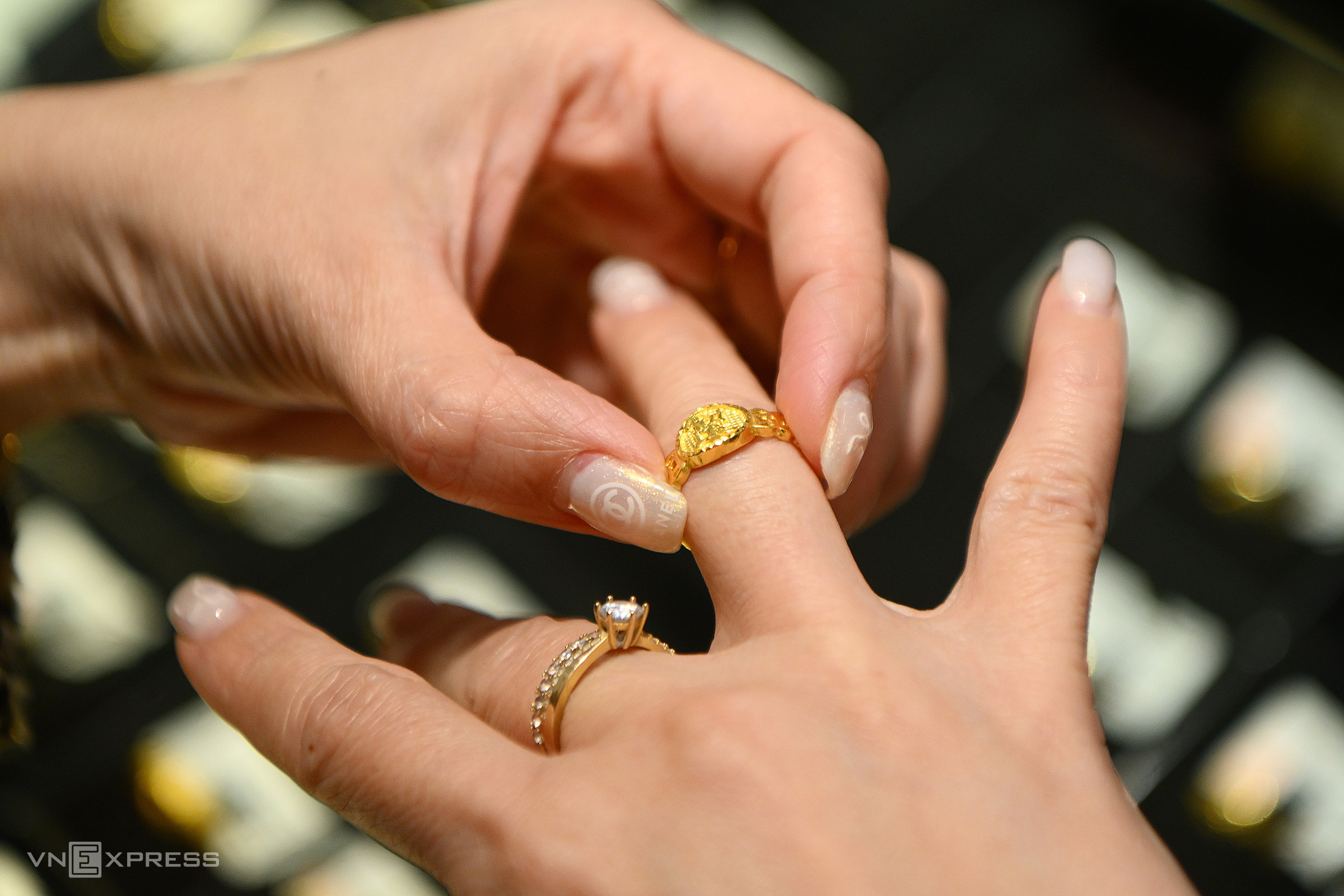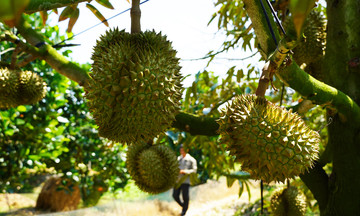The Ministry of Justice recently released the appraisal dossier for a draft decree amending Decree 24 on gold trading management, developed by the State Bank of Vietnam.
The draft decree stipulates that any customer buying or selling gold worth 20 million VND or more in a day must conduct the transaction via bank transfer (from the buyer's account to the business's account).
According to the State Bank, this aims to ensure customer verification and increase transparency in gold transactions.
 |
Customers examine gold jewelry at a store on Tran Nhan Tong Street (Hanoi). Photo: Giang Huy |
Customers examine gold jewelry at a store on Tran Nhan Tong Street (Hanoi). Photo: Giang Huy
Similar to a previous draft, the State Bank also plans to eliminate the monopoly on gold bar production, as well as the import and export of raw gold for gold bar production.
The State Bank will no longer hold a monopoly on gold bar production. Other qualified brands will be allowed to manufacture gold bars alongside SJC. This will provide consumers with more choices, increase market competition, and help reduce price discrepancies between different gold products and brands.
The State Bank plans to issue annual quotas and individual licenses to eligible businesses and commercial banks for the import and export of gold bars, and individual licenses for importing raw gold.
Businesses seeking a gold bar production license must have a minimum charter capital of 1,000 billion VND, while banks must have 50,000 billion VND. These entities must be on the State Bank's list of licensed precious metal traders and must not have any unresolved penalties for violations.
Based on the total annual quota, the State Bank will allocate quotas to businesses and commercial banks according to their charter capital, their previous gold import and export activity (if any), and their current needs.
The draft decree also introduces a mechanism to increase the supply of gold for jewelry production. Businesses will be licensed to import gold bars and raw gold for producing both gold bars and jewelry. They can also resell these materials to other entities licensed for gold bar production or jewelry trading.
According to the State Bank, the number of jewelry manufacturers is substantial. Therefore, the licensing process for importing raw gold needs to be optimized. The involvement of commercial banks alongside large enterprises in importing and distributing raw gold for jewelry production will ensure greater competition and transparency.
In China, a country with a similar system to Vietnam and a well-developed gold market, the People's Bank of China currently only grants gold import licenses to 13 commercial banks (9 domestic and 4 foreign).
Providing feedback on the draft, some businesses and banks have suggested expanding the scope of the decree to encompass future gold exchange trading. However, the State Bank stated that gold trading on accounts will be studied and guided later, along with the establishment of a centralized gold exchange.
Quynh Trang












